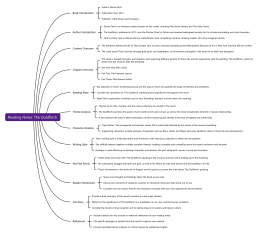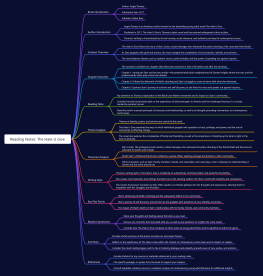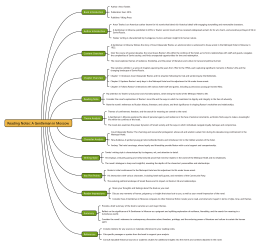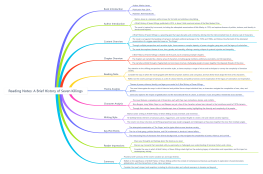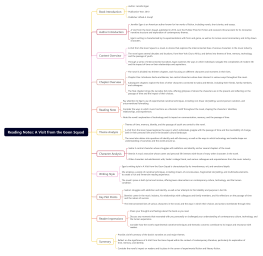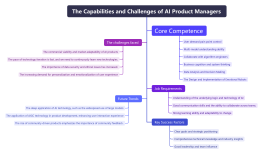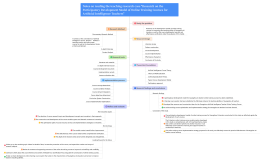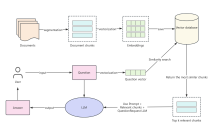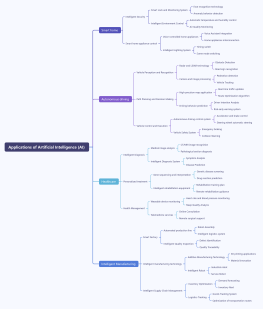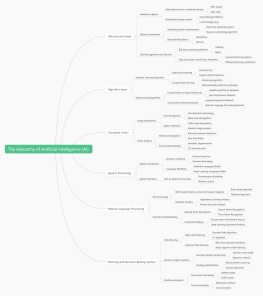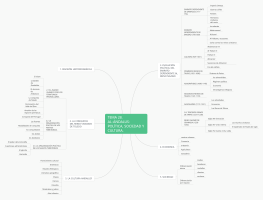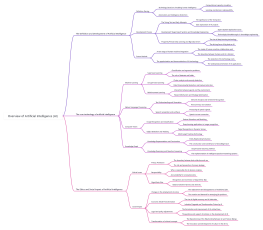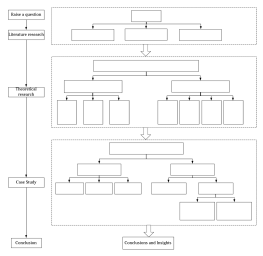Research on AI Ethics and Policy
2024-07-08 15:14:39 0 Report
Login to view full content
Other creations by the author
Outline/Content
Introduction
Purpose
Define the purpose of the research on AI ethics and policy, including the importance of addressing ethical considerations and developing regulatory frameworks for AI technologies.
Overview
Provide a brief overview of the key components and objectives of the research, emphasizing the need for interdisciplinary collaboration and stakeholder engagement.
Ethical Principles
Transparency
Examine the importance of transparency in AI systems, including transparency of algorithms, data sources, decision-making processes, and potential biases.
Accountability
Discuss the concept of accountability in AI development and deployment, including mechanisms for identifying and addressing ethical lapses, errors, and unintended consequences.
Fairness
Explore issues of fairness and equity in AI systems, including algorithmic bias, discrimination, and the impact of AI technologies on marginalized communities.
Privacy
Analyze privacy concerns related to AI technologies, including data collection, surveillance, data protection, and the right to privacy in the digital age.
Safety
Examine the safety implications of AI systems, including risks of accidents, failures, and malicious use, and strategies for ensuring the safety and reliability of AI technologies.
Regulatory Frameworks
Existing Regulations
Review existing regulations and guidelines for AI ethics and policy at the national, regional, and international levels, including initiatives by governments, industry associations, and non-profit organizations.
Gap Analysis
Identify gaps and shortcomings in current regulatory frameworks for addressing ethical and policy challenges related to AI technologies, such as limitations in scope, enforcement mechanisms, and international coordination.
Proposed Regulations
Propose new regulations, standards, and guidelines for governing AI technologies, taking into account ethical principles, technological capabilities, and societal needs.
Interdisciplinary Collaboration
Promote interdisciplinary collaboration among policymakers, technologists, ethicists, legal scholars, and other stakeholders to develop comprehensive and adaptive regulatory frameworks for AI.
Stakeholder Engagement
Public Consultation
Engage with the public through surveys, town hall meetings, and stakeholder consultations to gather input, feedback, and concerns regarding AI ethics and policy.
Industry Collaboration
Collaborate with industry stakeholders, including AI developers, technology companies, and research institutions, to develop industry best practices, self-regulatory measures, and ethical guidelines for AI technologies.
Civil Society Involvement
Involve civil society organizations, advocacy groups, and human rights organizations in the AI ethics and policy discourse to ensure diverse perspectives, representation, and accountability.
International Cooperation
Global Governance
Explore opportunities for international cooperation and coordination in AI ethics and policy, including bilateral agreements, multilateral treaties, and cross-border initiatives.
Normative Alignment
Promote normative alignment and convergence of AI ethics and policy frameworks across countries and regions to facilitate interoperability, mutual recognition, and harmonization of regulations.
Capacity Building
Support capacity-building efforts in developing countries and emerging economies to enhance their capabilities in AI governance, ethics, and policy development.
Conclusion
Summary
Summarize the key findings, recommendations, and implications of the research on AI ethics and policy, emphasizing the importance of ethical AI development and responsible governance in shaping the future of AI technologies.
Call to Action
Call for continued research, dialogue, and action on AI ethics and policy to address emerging challenges, promote societal trust, and ensure the responsible and beneficial use of AI technologies for all.

0 Comments
Next page
Recommended for you
More
